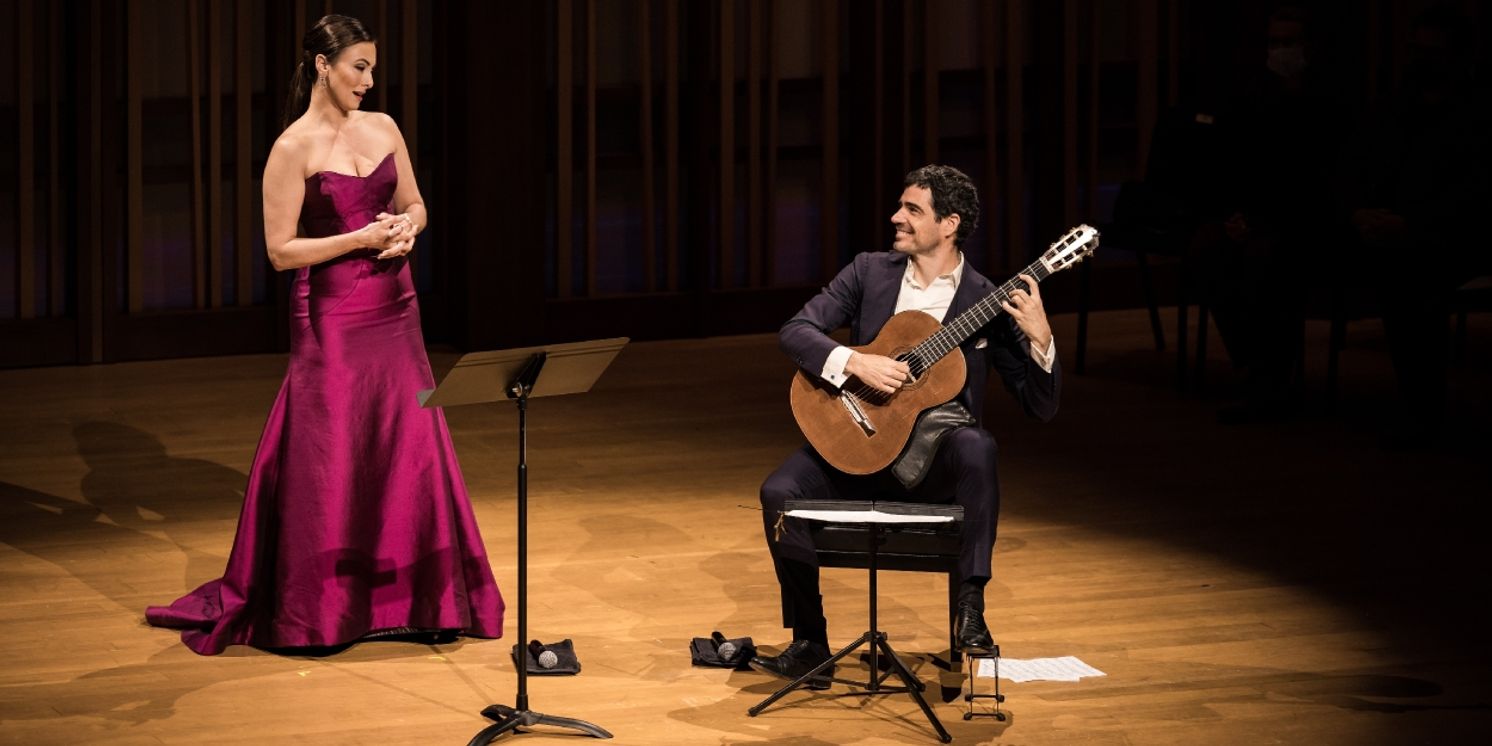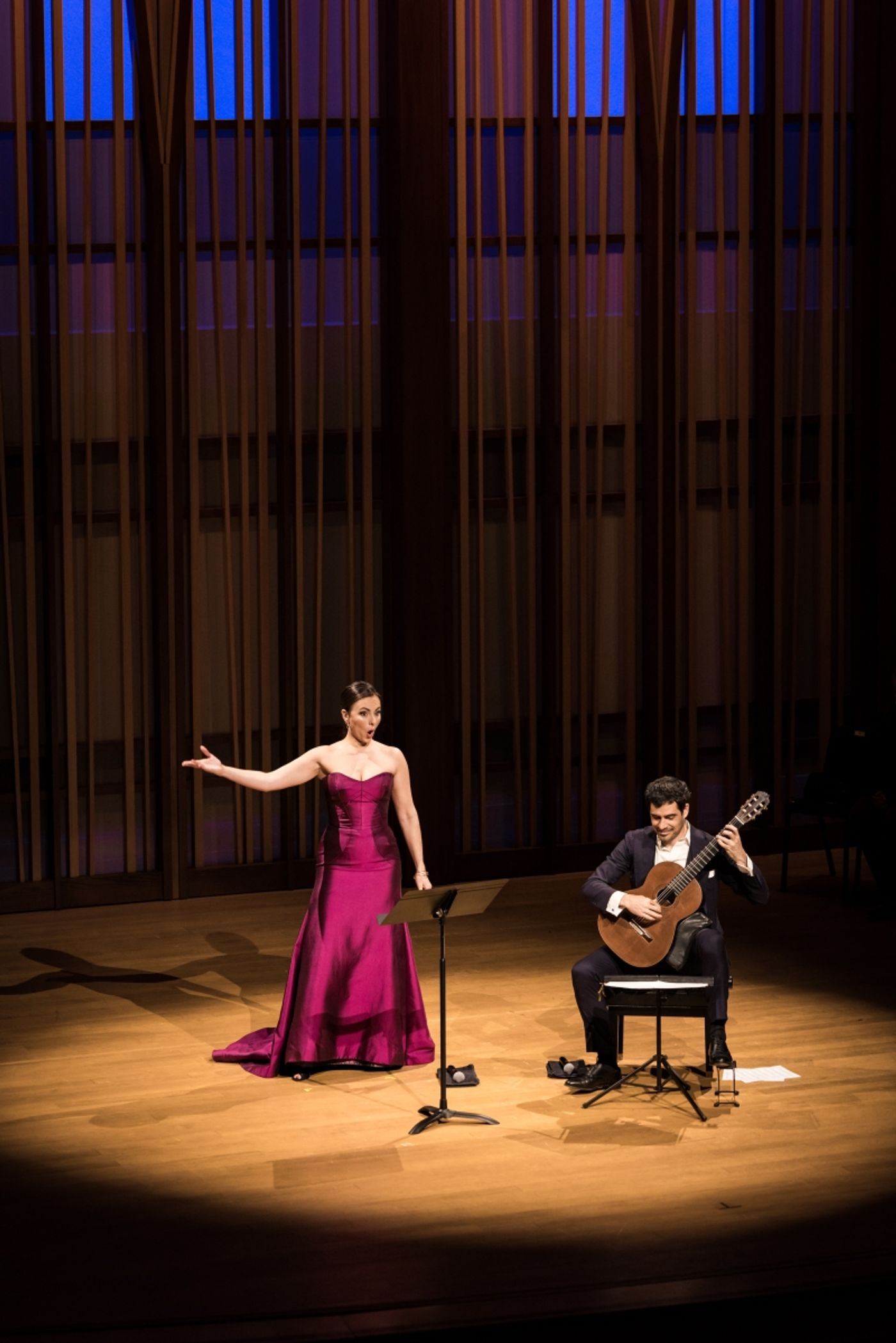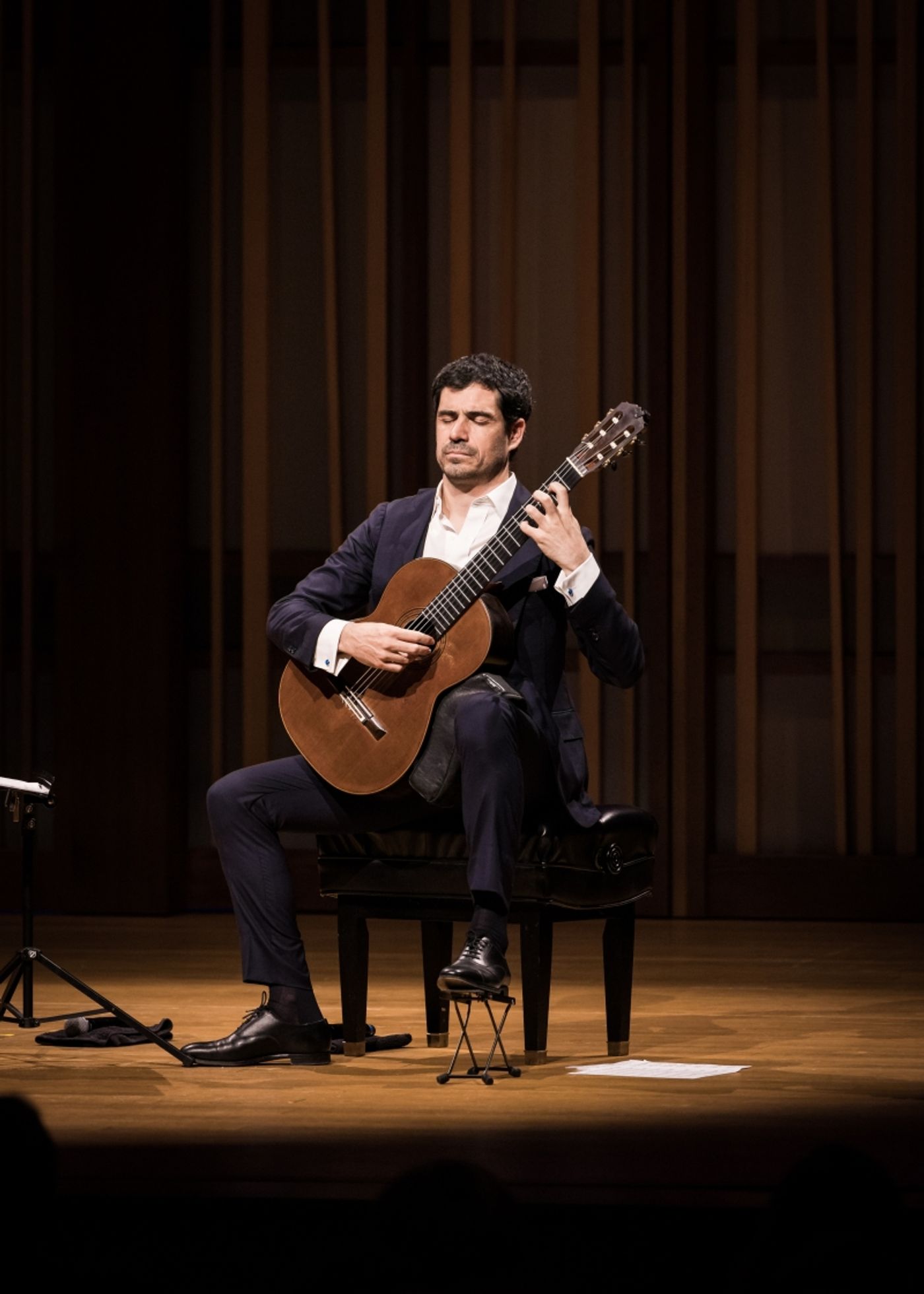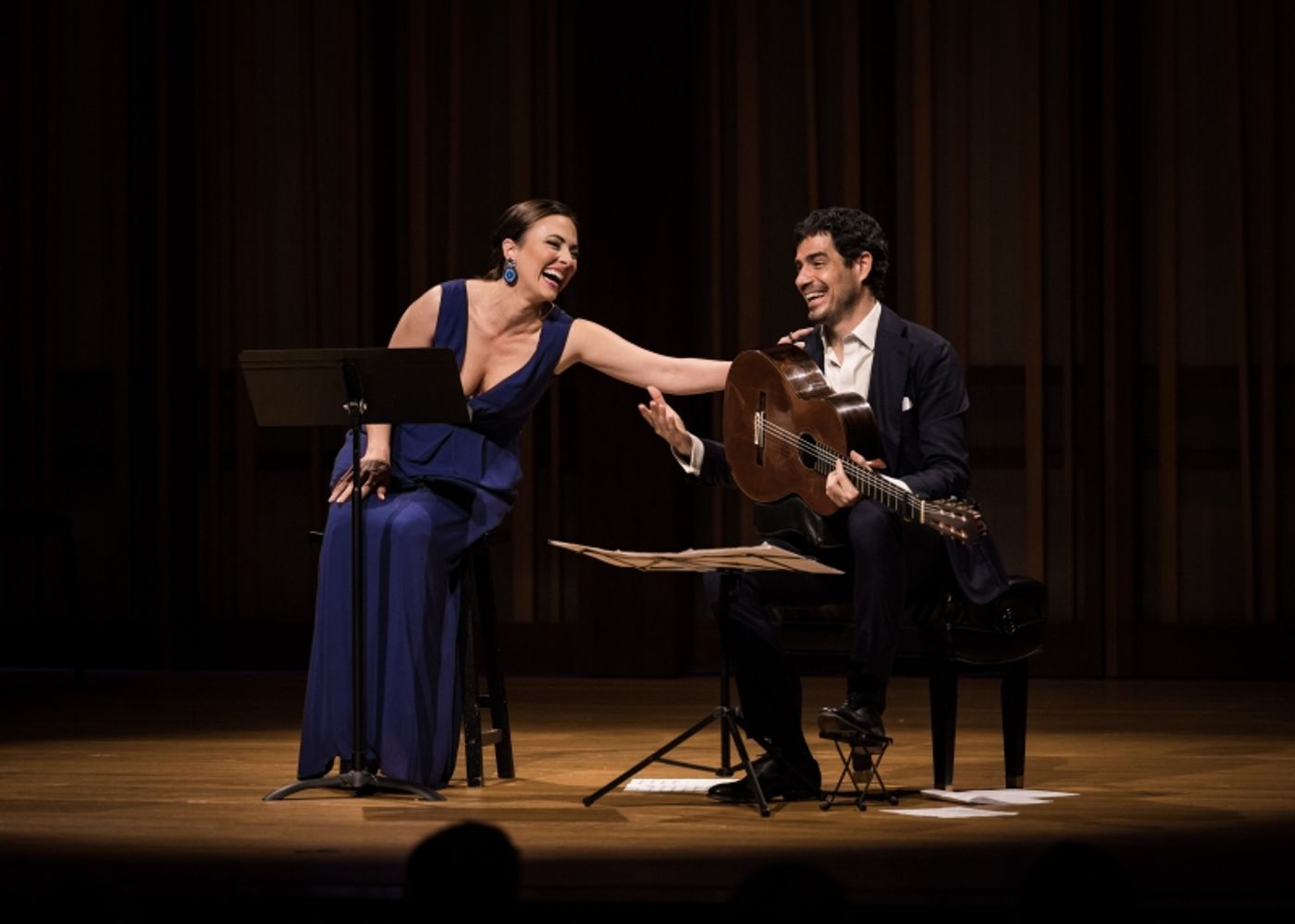Review: ISABEL LEONARD and PABLO SÁINZ-VILLEGAS Together at The Conrad in La Jolla
A recital of opera diva and classical guitarist


Photo: Sam Zauscher
Mezzo Isabel Leonard and classical-guitarist Pablo Sáinz-Villegas are stars in their fields.
Leonard has sung on two Grammy-winning opera recordings and won a Beverly Sills Artist Award at the Metropolitan Opera--and even guested on Sesame Street. Sáinz-Villegas has garnered 30 international awards, including the Segovia, which he won at age 15, and critics have compared him to that legendary guitarist.
Understandably, their recital at the La Jolla Music Society's Conrad sold out more than a month before the performance--chairs were added on stage for late ticket buyers--and the artists lived up to their reputations.
Leonard's voice has the beauty and easy fluid power of a top mezzo, while the guitarist's exceptional technique and control bring the best from quiet single notes or hard, Flamenco-like strumming.
But is the combination of mezzo and acoustic guitar ready to supplant diva and piano? Not likely in the grand-opera arias that began the concert.
The first was the familiar Seguidilla from Act I of CARMEN. Leonard will make her debut as Carmen at the Washington National Opera in May, and she'll have no trouble convincing the audience that Corporal Don José would succumb and desert his post to join her in a smuggler's mountain-hideout. Had he the voice, Sáinz-Villegas would make a dashing tenor costar. But in this recital his very basic guitar accompaniment, no matter how well played, added little to Leonard's seductive performance.
The combination did work better in the following Voi che sapete from NOZZE DI FIGARO, though the guitar can't match the playfully delicious piano trills in a more typical recital arrangement.

By the time duo-arrangements of arias from Offenbach and Rossini had further demonstrated Leonard's charisma and skill, I was thirsting for a solo piece from Sáinz-Villegas and was amply rewarded with the shimmering glory of Francisco Tárrega's "Recuerdos de la Alhambra." I've heard performances as good, but none better, and none in acoustics as awesome as those of the Conrad. The hushed final single notes would have been inaudible in some venues.
Leonard returned to close the first set with five of the seven folk songs arranged for soprano and piano in a work by Manuel De Falla. The transfer to mezzo and guitar showed how effective the combination could be when not taking on Grand-Opera.
After intermission, Sáinz Villegas pleased with Asturias, written originally for piano by Albéniz and later transcribed for guitar by Segovia and others. As in his first solo, he showed why Billboard has called him the "soul of the Spanish guitar."
And the second half of the concert continued with successful demonstrations of how effective voice and guitar can be. Leonard first teamed for three of the many Spanish folksongs collected and arranged by Garcia Lorca for performances in which he accompanied himself on piano or guitar. Sáinz-Villegas reinforced the Latin mood with his final solo, the virtuosic "Tango en Skai" by guitarist Roland Dyens. Precise and brilliant liquid runs alternated with forceful rhythmic strumming.
Duets of lilting romantic songs by Latin composers Carlos Gardel, Ariel Ramírez, and Julián

Carrillo completed the formal program. It was in these that the charm, skill and versatility of the attractive duo was most effective.
Demanded encores brought the concert to a close with three familiar melodies. Carmen's Habanera was a chance for Leonard to range from sassily seductive to powerful as guitar supplied the dance rhythm.
"Bésame Mucho" showed the artists at ease in the pop genre, as did the grand finale, "Cielito Lindo." The entire audience joined for the chorus's "Ay, ay, ay, ay," many even continued with the following Spanish lyrics. All enjoyed a song that brings people together in a festive mood--an enjoyable start to the holiday season.
The concert reviewed took place on December 1 and was the first in a promised series of collaborations between the San Diego Opera and the La Jolla Music Society.
Reader Reviews
Videos

